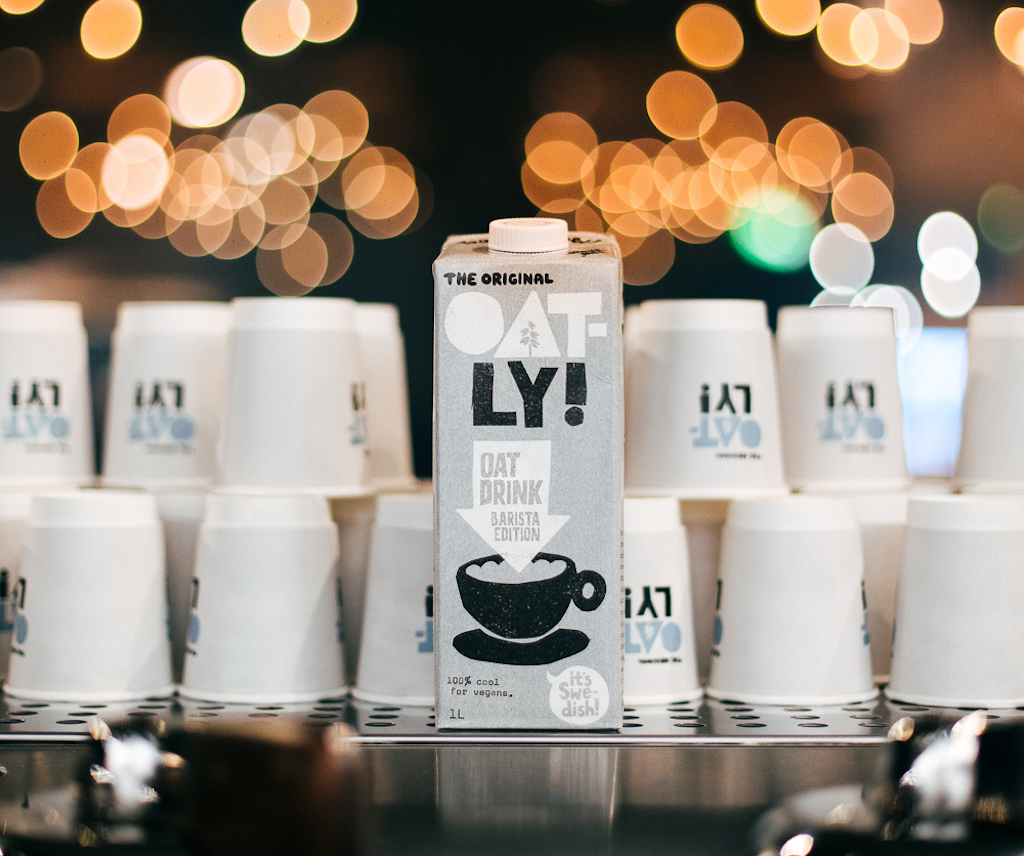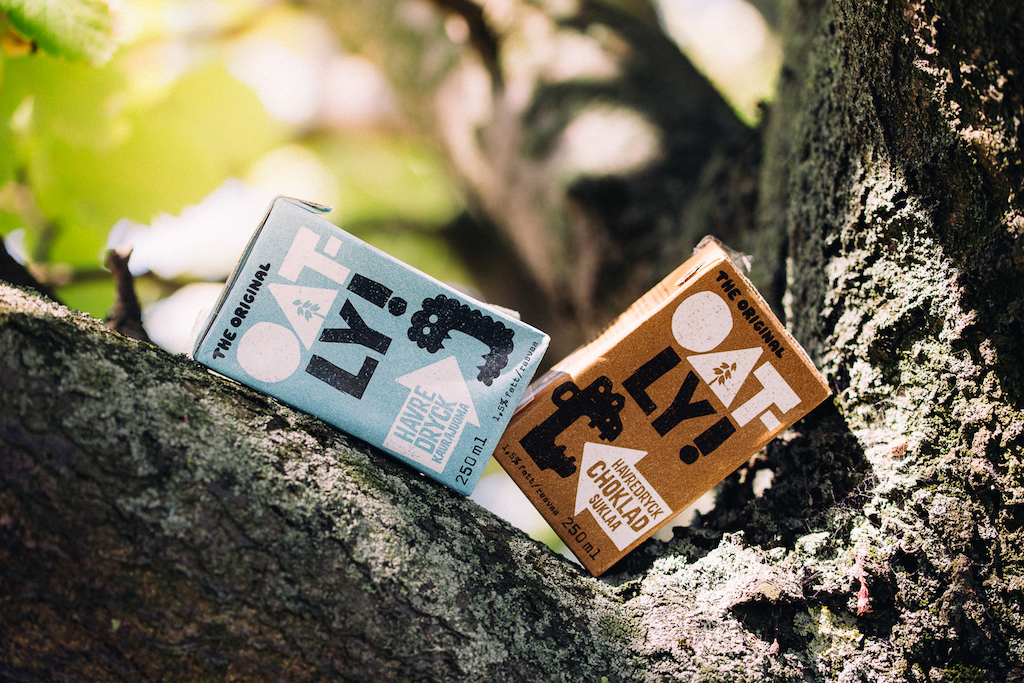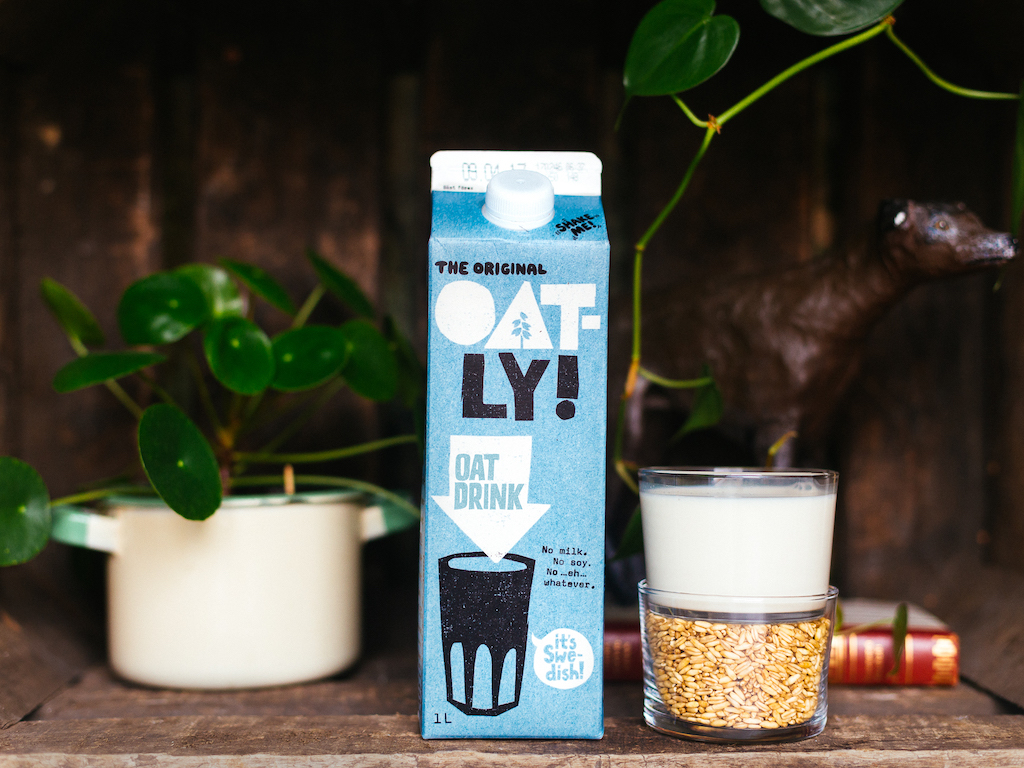Asia Expansion: Oatly Launches In Singapore Where 1/3 Consumers Don’t Know About Plant-Based Milk
4 Mins Read
Oatly, the world’s most famous oat milk brand, has recently landed in Singapore as part of its ambitions to grow its presence across Asia, a region where the dairy market is ripe for disruption. Now available across the city-state’s largest supermarket chains and e-commerce platforms, as well as all Starbucks locations island-wide, the Blackstone-backed plant-based milk giant hopes to tap into the dairy-free trend amongst Asia’s increasingly conscious consumers.
On the heels of Oatly global controversy regarding the US$200 million investment it received from deforestation-linked firm Blackstone, whose CEO Steve Schwarzman is a major donor to Donald Trump Super PACs, the plant-based milk major has announced its launch in Singapore.
Oatly’s oat milk drink range is now available to the city’s consumers at some of the biggest retailers, including Cold Storage and FairPrice Finest, as well as online platforms like RedMart and Amazon Prime SG. Singapore residents will also find Oatly served up across every Starbucks location, following the coffee giant’s roll out of new plant-based options in eight different markets in Asia.

We are building a factory in Singapore in response to the soaring demand for quality Oatly products across Asia. The factory in Singapore is currently under construction and is expected to complete within next year.
Herbert Law, Brand Director, Oatly Asia
Speaking with Green Queen, brand director of Oatly Asia, Herbert Law, explained that Singapore was a “very natural choice” as part of the company’s wider expansion strategy across Asia. Law added that the city’s consumers have been steadily moving towards dairy-free options too, amid rising awareness about sustainability and health.
“People here [in Singapore] are environmental and health-conscious,” Law explained. “We are building a factory in Singapore in response to the soaring demand for quality Oatly products across Asia. The factory in Singapore is currently under construction and is expected to complete within next year.”

Nevertheless, the company believes that consumer education remains a major hurdle to reach the Singaporean mass market. Its recent survey conducted among 1,000 residents in the city-state indicated that a third of consumers have not heard of plant-based milk, while 72% said they were not familiar with its environmental or health advantages.
But there appears to be a major push from younger generations, with a whopping 82% of those aged 18 to 24 open to trying plant-based milk, citing sustainability as their primary motivation. Globally, the trend towards plant-based dairy alternatives has picked up significantly in the wake of the coronavirus, with some experts suggesting that big dairy could be wiped out altogether due to the compounding impacts of its supply chain disruption.
By expanding its reach across Asia, Oatly says it hopes to accelerate the growing shift away from conventional dairy, which would equate to significant emissions savings. According to nonprofit GRAIN, ten of the world’s biggest dairy corporations are responsible for generating enough carbon emissions to match half of France’s total carbon output.

We will continue to explore new Asia markets in the near future.
Herbert Law, Brand Director, Oatly Asia
Officially, Oatly has already established a presence in key Asian markets, including in Hong Kong, Taiwan, mainland China and South Korea. Pushed for details about the next Asian market on the horizon, Law did not have any concrete plans to share, telling Green Queen “We will continue to explore new Asia markets in the near future.” It’s likely that he company will face increased competition from rival brands like U.S. based Califia Farms, distributed by Green Common, European giant Alpro and Asian beverage behemoth Vitasoy.
To stay ahead of the game, it is likely that innovation in terms of packaging will help companies grow their consumer appeal, particularly as demand for sustainable low-waste products continues to surge. One of the criticisms aimed at shelf-stable plant milk brands like Oatly is the packaging- Tetra Pak cannot be easily recycled in many geographies. In cities like Singapore, the need for solutions is even more crucial, given that it sent an eye-popping 3 million tonnes of waste to its only and nearly full landfill in the past year alone.
When asked about the progress on recycling Tetra Paks – the type of cartons that Oatly’s products are packaged in – Law explained that the company currently uses 86% of renewable packaging materials and has plans to reach 100% in the future and added that Tetra Pak is “optimal” in regard to the total climate impact compared to that of glass.
However, upon further questioning about recyclability more specifically, Law was non-committal, telling Green Queen that Tetra Pak recycling “highly depends on local policy and facilities of each market. Under the National Recycling Scheme of Singapore, beverage cartons are categorised as paper packaging.”
“We will continue to find out better solutions,” he added.
All images courtesy of Oatly.




